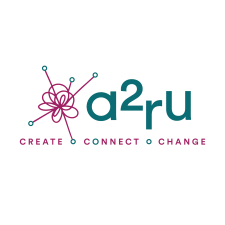Keywords
Acting; A.I.; Voice Acting; Voice Over; Artificial Intelligence; Voice Cloning; Synthetic Voice; Uncanny Valley
Abstract
The rapid development of Artificial Intelligence (AI) and voice cloning technology presents significant challenges and opportunities in the field of voice acting and performing arts. This article explores the profound transformations taking place in the voiceover industry due to the convergence of AI, voice synthesis, and personal voice cloning technologies. The author, a seasoned voice actor, reflects on the impact of these advancements on his profession, from the democratization of voiceover tools to the emergence of AI-generated voices that closely mimic human speech.
The article delves into the intricate interplay between technology and human creativity, investigating the implications for voice artists in an era where AI-generated voices are becoming indistinguishable from human performances. The study further examines the expanding market for voice cloning, as well as its potential to transform industries beyond voice acting, such as healthcare and entertainment. The ethical dimensions of voice cloning, including issues related to intellectual property and artistic identity, are explored, with a focus on how artists can assert their uniqueness and maintain control over their vocal identity in a landscape where AI-generated voices proliferate.
As the author engages with the complexities of AI's impact on voice acting and teaching the craft in higher education, he underscores the enduring power of human connection and emotional resonance in storytelling. The article concludes by highlighting the role of arts education in cultivating and celebrating the idiosyncrasies of human expression, and how educators must guide voiceover students to embrace their individuality in a world increasingly influenced by AI. Ultimately, the study calls for a renewed dedication to the distinctive qualities of the human voice, emphasizing that despite AI's advancements, the essence of human communication remains irreplaceable. (written by Chat GPT, trained on the article)
Creative Commons License

This work is licensed under a Creative Commons Attribution-NonCommercial 4.0 International License
Recommended Citation
Paul, Adam
(2023)
"The Voice Actor and Their Double: Working as a voice actor and teaching voice acting in the age of AI voice cloning,"
Tradition Innovations in Arts, Design, and Media Higher Education: Vol. 1:
Iss.
1, Article 6.
DOI: https://doi.org/10.9741/2996-4873.1017
Available at:
https://digitalscholarship.unlv.edu/tradition_innovations/vol1/iss1/6
Time Period
2024
Included in
Acting Commons, Film Production Commons, Performance Studies Commons



